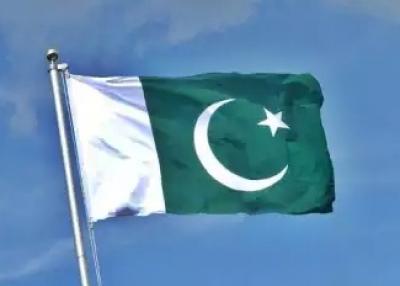By N.C.BipindraOn March 23 (today), Pakistan is celebrating its Republic Day.The day is significant, as Pakistan adopted its first Constitution on this day.From the Dominion of Pakistan, it became the Islamic Republic of Pakistan.From then on,
Islam became the central pillar in Pakistan around which the social, political and economic life of the state has revolved.
Pakistan consists of four ethnic groups — Punjabis, Pashtuns, Baluch, and Sindhis — that have historically never co-existed in the same space.The Punjabis, about 45 percent of Pakistan’s population, dominate the nation’s army and the state apparatus, and treat the minorities as pariahs, even though the ethnic minorities among them regard 72 per cent of Pakistan territory as their ancestral homeland.
All the minorities oppose Punjabi domination, and the Baloch, in particular, have waged an unending insurgency since their forcible incorporation into Pakistan.The Baloch say that they are waging the fifth wave of insurgency at the moment since 2001-2002 and have shown their resilience in the face of overwhelming force used by the Pakistani state against them.
The Pashtuns have been radicalised and many of them have been driven into the arms of al Qaeda and the Taliban by the Pakistani state, which has used them as fodder for its forays into Afghanistan at one level and has unleashed indiscriminate force against them on the other, especially in the tribal borderlands resulting in massive casualties and displacement.This has turned Pashtuns against the Pakistani state.
The Shias are a significant sectarian minority in Pakistan, who continue to be treated as outsiders and are being ruthlessly killed.According to the Human Rights Watch (HRW), since 2008, thousands of Shias have been killed by Sunniextremists.
Very recently, a suicide bomber went inside a Shia Mosque in the north-western Pakistani city of Peshawar killing at least 56 innocent people.
Pakistan has become a graveyard of the Shias.
Such attacks on the Shia minority are threatening the stability of the state.Balochistan is in a state of ferment.
It is a matter of time before it breaks away from Pakistan.It was an independent state named Kalat within the British Empire.
In May 1948, the Pakistan Army invaded Balochistan and annexed it.Actually, when the Dar-ul-Awam (parliament) of Kalat (Balochistan) met on February 21, 1948, it decided not to accede to Pakistan, but to negotiate a treaty with it todetermine Kalat’s future relations with Pakistan.
On March 26, 1948, the Pakistan Army was ordered to move into the Baloch coastal region and it was announced in Karachi that the Khan of Kalat had agreed to merge his state with Pakistan.Jinnah accepted this accession which was doneunder duress, disregarding the motion in the Balochistan parliament rejecting such merger.
The accession was never mandated by the British Empire either.Under the Indian Independence Act of June 1947, the British paramountcy on Kalat lapsed, and Balochistan’s independence was restored in July 1947.
The sovereign Baloch state, after British withdrawal from India lasted only 227 days.During this time, Balochistan had a flag flying in its embassy in Karachi where its ambassador to Pakistan lived.
When the Pakistan army annexed Balochistan forcefully, Baloch nationalists revolted, sowing the seeds of Baloch insurgency in Pakistan.
Insurgencies by Baloch nationalists have been fought in 1948, 1958–59, 1962–63 and 1973–1977, with an ongoing fifth wave of insurgency from 2001.
Rich in resources like natural gas, oil, coal, copper, Sulphur, fluoride and gold, Balochistanis the largest and least developed province in Pakistan and has never received a fair proportion of the revenues generated by its gas supply to other parts of the country.
Balochistan is economically marginalised and poor compared to the rest of Pakistan and that is why Baloch armed groups are demanding greater control of the province’s natural resources and political autonomy.
The Pakistan army has beencommitting crimes in Balochistan.Tens of thousands of civilians have been killed and hundreds of thousands of people have been affected all across Balochistan.
According to Voice for Baloch Missing Persons (VBMP), around 5,228 Baloch have gone missing from 2001 to 2017.Similarly, Akhtar Mengal, a leader of Balochistan National Party (Mengal) (BNP-M), presented a list of 5,000 missing persons to the then newly formed government of Imran Khan in 2018.
In 2016, nearly 1,000 bodies of civilians and political activists were found in Balochistan, which pointed to large-scale extrajudicial killings.Despite high levels of oppression, Baloch nationalists continue their movement for the independence of Balochistan and every day, the occupational army is accounted for the crimes it commits on the people.
Like Balochistan, Sindh is also in a state of agitation.Over the past many years, the movement for an independent Sindh remains strong.
Running battles between migrant Pashtuns and local activists continue to rage on.Moreover, the Sindhishave been jailed, tortured and disappeared by the Pakistani army for demanding an independent homeland for the Sindhis.According to the Asian Human Rights Commission, in Sindh province more than 100 nationalists were abducted and have disappeared after 9/11, many were extra judicially killed, and their tortured and bullet riddled bodies were dumped on the streets.
Further North, the restless borderland of Khyber Pakhtunkhwa, governed by Imran Khan’s Tehreek-e-Insaf, has suffered because of use of excessive force on thePashtuns living in this terrain.The Pashtuns too aspire to live independently.However, they too are facing intimidation, threats and arrests from the Pakistani army for aspiring for the state of Pashtunistan.
According to a report, at least 70,000 Pashtuns have been killed in the last 16 years.More than 1,000 tribal elders have been killed, thousands of Pashtuns have disappeared showcasing Pakistan Army’s gross human rights violations.PashtunTahafuz Movement (PTM) has been successful in exposing the violent crimes being perpetuated by the Pakistani army and brings to the front the issues regarding enforced disappearances and fake encounters by the state.
The ethnic tensions in Pakistan are thus mounting and this threatens the very survival of the state.
Moreover, the country faces a mounting debt crisis and a perennial trade imbalance.Pakistan looks like a war-ravaged skeleton of a state that is not even trying to put itself back together.
Pakistan’s fatal problem is “mil-tablishment” that controls every vital department in Pakistan and it constantly reinforces the hatred for India to showcase Pakistan’s Army as the defender of Islam and the bulwark against India’s alleged designs to swallow Pakistan.
On the Pakistan’s republic day, it is very important to understand that Pakistan continues to remain under stress and its institutions continue to fall apart.
The terrorists it bred to bleed India by a thousand cuts are bleeding Pakistan instead.
(N.C.Bipindra is Chairman, Law and Society Alliance, a New Delhi-based think-tank.He can be reached at [email protected])
bipindra/svn/
#Pakistans #internal #troubles #Delhi #Imran Khan #Innocent







